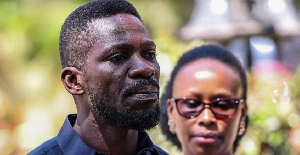Male Circumcision – A Painful Traditional Excision or a Painless Clinical Decision?
Reminiscences of the 60s in Ghana
By Kwesi Atta Sakyi
28th December 2012
What is male circumcision? It is also referred to as Male Genital Mutilation (MGM) or male genital amputation. The word circumcision means cutting around (Wikipedia). It is the practice of the excision of the foreskin or prepuce, at the tip of the male organ shaft or penis, to reveal the glans penis, which is knob-end shaped, bulbous, bell-shaped or helmet-shaped. Others believe it is shaped like a mushroom. It is believed that one-third of males in the world are circumcised. Male circumcision is said to date back some 2500 years ago in ancient Egypt, among the elite or ruling classes, as a form of sacrifice (Gascoigne 1998).
What is the import of male circumcision? It is believed that it is a mark of initiation into adulthood or manhood, therefore a social observance of the rite of passage. It shows maturity, leadership and ability to withstand pain, requisite of warriors. It is also a personal hygienic practice, to avoid the accumulation of foul-smelling detritus or dead cells and fat forming around the ridge of the glans, which is enclosed by the foreskin or prepuce. This cheese-like matter is called smegma (Wikipedia). Medical experts believe circumcision prevents banalitis or inflammation of the glans. It also prevents phimosis or inability of the prepuce to retract backwards for cleaning. Furthermore, MGM prevents Urinary Tract Infections (UTIs) such as penile cancer, cervical cancer in women, dermatitis, among many other ailments.(Wikipedia).
Male circumcision is said to be common in West Africa, the Muslim world, among the Jews and Arabs in North Africa, and among many Christian sects. Biblical accounts of circumcision refer to the covenant the Patriarch Abraham made with God (Gen 17: 7-14). Those Christians who avoid circumcision place their authority on Paulian injunctions, concerning the new baptism of fire, as contrasted with the old dispensation of physical sacrifices and external manifestations of faith, based on the old Mosaic laws and religious traditions of the Talmud and Torah (Gascoigne1998). (Colossians 2:10-15).
On the Tuesday of 11th April 1967, I was to make history in my personal life, as it was the day I was circumcised by the traditional circumciser, Papa Wanzam, at the Winneba Zongo. At that time, I had barely spent a year at the co-educational institution, the Komenda Teacher Training College (KTTC), where I was pursuing a Certificate A 4 year teacher training programme. I had entered the co-educational boarding institution, having earlier completed my 10 year elementary education in 1966 at the Winneba Methodist Middle Boys’ School, and having passed the dreaded teacher training entry examinations with flying colours.
Earlier on, I had sat the Middle School Leaving Certificate exam (MSLC) or the standard seven exams, and passed with distinction. Komenda College had quite a lot of elderly men and women, some of whom were about three times my age, and they had really seen working life as Agricultural Extension Officers, Village Catechists, Quartermaster Generals in the Workers Brigade, High School Finalists, Head teachers, among others. Of course, there were young teens also who were fresh from elementary school like me. Unfortunately, four of those teens were sent home for poor academic performance at the end of that year.
Being uncircumcised gave me a lot of psychological worries, as I had to live with the stigma, amidst jests and taunts from my male colleagues, who openly in public, made fun of me before our girls and ladies. We had open bathrooms at the college, so there was no privacy for anyone. The taunts went so far that sometimes I cursed my parents for not having taken action on the issue earlier on. My academic performance was even affected in a way because of having some inferiority complex among my colleagues at school. Many a time, during our Saturday evening entertainment, which usually was a record dance, my male classmates would be taunting me in front of our ladies, by telling me to go and get circumcised.
What an open embarrassment! I vividly remember that somewhere in 1956, whilst I was six years old, I had seen my nephew being circumcised at home by the Wanzam. When I had enquired why I was not circumcised, I was told that as I was born a twin, I had to undergo some special ritual or traditional cleansing ceremony before being allowed to be touched by a razor. When I grew up a bit, I wondered whether I was like the Nazarenes in the Bible. I waited and waited for my parents to perform the special cleansing ceremony for twins, but it never came to pass. However, up to age 15 or also, I remember that every year we held the annual twins yam festival in August, during which time rams, goats and chickens were slaughtered and our bodies were smeared with red and white clay, and we had to bath with water immersed with special herbs and the rubbish remains of all the food prepared. We were fed with special diet such as mashed yam, mixed with red palm oil, and boiled eggs.
We had to carry the same water with herbs, and make a procession through town while carrying the water with the herbs. Many families in town with twins also joined to celebrate the occasion. The town was awash and agog with festivities, amidst singing of traditional songs. We all headed towards the beach, to a place called Oseenee Poase ( Oseenee Beach). Sometimes, we would be suddenly possessed by some spirit, and we would start quaking all over, amidst the singing and chanting of our appellations. We would lurge suddenly into the crowd of onlookers who had lined the streets, charging with our carriage on our heads. Then we would be chased and held up by strong men who would come, chasing us and chanting our appellations.
Sometimes, the journey to our chosen destination at the beach would be aborted and we would be carried shoulder high to the house, still in our frenzied stupor. Having digressed a bit, let me return to that fateful Tuesday on 11th April 1967, when I went for circumcision. Earlier on, before that fateful day, I had in a chat with my octogenarian father, explained why I wanted him to accompany me to Papa Wanzam at the Zongo to get circumcised in the traditional way. My old disciplinarian father, for once, did not shout at me or argue that I had not yet undergone the special twins cleansing ceremony. So, early that morning, we took off at dawn, walking. We arrived at the Zongo around 5 o’clock in the morning.
It was a distance of about 3 or 4 kilometres. We knocked on Papa Wanzam’s door, at a place near the Muslim Mosque at Winneba. The old man of about 75 years old, with white grey hair and beard, ushered us in. He provided a small stool for me to sit on as we told him our mission. Then he went for his old and frailed leather bag, out of which he produced a set of about six sharp razor knives and spread them on the floor in front of me. Perhaps, to scare me. But I had made a resolve that, come what may, the Rubicon was crossed. I did not shudder nor show any sign of being afraid or having second thoughts. The taunts, jests and humiliation, plus the verbal abuse at college was enough to steel my nerves to enervate and motivate me to go through the most gruesome ordeal.
Papa Wanzam carefully selected one razor blade from the lot and he assured me that everything would be fine. I told my father not to hold me as I was prepared for the worst, being a fully grown young adult, full of youthful exuberance and sophomoric braggadocio. Papa Wanzam set about the business which he knew best. I wondered how many sizes and hues of penises he had handled. As I write, I remember a line in Chinua Achebe’s Things Fall Apart, which read like, ‘If a penis does not die young, it will surely taste bearded meat.’ Hmmmm! Papa Wanzam did his work with consummate professional zeal, with a glint of hope and triumph in his sharp eyes. He first pulled the prepuce or foreskin and with measured mathematical precision, he deftly dealt the first blow to the top flesh of my organ.
A scintillating sharp thrill and pang of pain went through my nervous system, and I winced and grimaced, remaining still, but throwing my head to one side and grinding my teeth hard. What followed next was a terrible, excruciating, and indescribable sharp pain, as Papa Wanzam again deftly dealt two sharp excisions to the underpart of my organ, where I guess the flesh, veins and perhaps sinews converged. That was the deepest cut which was heart wrenching, and exceedingly terrible and horrific.
At long last, the ordeal was over and I had for the first time in my life, proved that I had indeed arrived in the citadel of manhood and adulthood, that, I had relegated childhood fear into the dustbin and archives of limbo and forgotten things. I had indeed, like Napolean or Julius Caesar, become the monarch of all that I surveyed. I must have uttered, like Caesar in 47 B.C., that, ‘I came, I saw, I conquered (Veni, Vidi, Vici), after he had conquered Pharnaces II in Pontus in current day Turkey (Wikipedia).
(The Latin expression could also be rendered as Venire, Videre and Vincere). These days, very few of the teenagers in Ghana know little about the various phases of traditional life called the rites of passage, because westernization and the computer age has taken over and overwhelmed everything traditional. In my day in those 60s, groups of boys would get together in August, during the cold fishing season, and raise their own money, unbeknown to their parents, and go to the Wanzam to get circumcised. I did not grow up in a home where there were boys. I had eleven sisters, and my father would not allow me the freedom to bond with other boys from outside . Hence, my circumcision predicament. Back to our story.
After Papa Wanzam was through with me, he produced some brown powdery stuff from some tree bark, which he daubed on the fresh wound, and he bandaged it with some strands of some old cloth. He made me a big calabashful of millet porridge, which he made me drink to the last dregs. I paid the prescribed fee and set off with my old man for a long walk back home. I walked perfectly and normally, in order not to raise eyebrows or suspicions from acquaintances who we were likely to come across on the way. The actual pain was to come a day or two after the ordeal. I went about walking normally in my traditional Ghanaian male toga, without using my hand to shield the wound in my cloth, as I had seen others do before me.
I decided to be bold and beautiful. I never gave the faintest clue to my neighbours of what had transpired, but one observant old lady caught me napping. She enquired from me if all was well, and for the second time in my life, I think I lied that all was well with me. She was one of my numerous neighbourhood clientele, who used to employ me to write letters for them to be posted to their relatives in other parts of Ghana. I remember that as young as 12 years old, while in the upper primary school, my neighborhood women had great confidence in my potential as a scribe, so they had voted to ask me to be their chief letter-writer. Those I wrote to often came to congratulate me.
I had at that age, to listen carefully to their message which was often couched in the most difficult native expressions. I had to try to summarise what they wanted written in the letter, and often, I read back to them in the vernacular, what I had captured in terse words in English, with my stick pen and nib, and a bottle of either Watermans Ink or Lions Ink. Quinck Ink was a luxury and an exclusive brand. Back to the circumcision story.
Those of us from the coastal areas often went to the beach to dress our wounds and to bathe in the sea, as we believed that the saline sea water had many therapeutic powers. I think I still believe in that, as the salinity of the ocean has been recognized as one of the greatest natural disinfectants. After about 3 weeks, the wound was healed, except that the skin colouration/pigmentation around it took quite sometime to return to its usual dark colour. In May, I went back to college, and the taunts and jests thrown in my direction suddenly ceased. I guess that if I had not been bold to take that critical decision at that age of 16+, I would have remained uncircumcised up to today.
Perhaps, it would have greatly hindered or jeopardized my chances of having a woman to marry in Ghana. I was told that there were taboos in Ghana then regarding circumcision. Twins like me were considered specially born, so they were exempt from the circumcision ordeal, unless they underwent elaborate cleansing rituals, which was expensive and which would take about a week of being confined indoors. The head would be closely shaven, the body smeared with oil, myrrh and white clay, and special beads would be tied at the wrists with some beads around the neck and waist.
It was an elaborate puberty rite in the rites de passage. There would be slaughtering of a ram, feasting, dancing and a lot of jollification. Apart from twins, males who were earmarked to become occupants of the black stool or be enthroned as traditional chiefs would be disqualified from being chiefs, if it was found out that they were circumcised. However, with the advent of Christianity and western education, some of these superstitions and cultural taboos were relegated into limbo. They have been jettisoned or debunked. While at College in my first year in 1966/1967, one of the African novels we used for English Literature was The African Child (Le Enfant Noire, 1953) by Camara Laye.
Our American Peace Corps tutor, Miss Milligan (nee Mrs. Lewis), set our class alight with dramatic rendition of how the boys in Kourossa, rural Guinea, were taken to a clearing in the bush and made to undergo some puberty initiation rites of circumcision. Miss Milligan would dramatise the scene, where the dreaded circumciser, Kondon Diarra would emerge suddenly from nowhere, brandishing his sharp razor knives, and the poor boys would cower and cringe in their makeshift shelter in the bush, dreading and anticipating the unthinkable. Perhaps, they soiled their pants in their cold comfort and humungous trepidation.
The women onlookers would vehemently petition the hideous and merciless Kondon Diarra to go away shouting, “Go away, Kondon Diarra, go away….’ Some of us in our mid teens then would get carried away by the vividly enacted scene, but then, to me it was like letting the dogs out, or the cat out of the bag, as I became a target of derision and public opprobrium in my class of T1B. I was subjected to some verbal abuse, but then, I took it all with humour and rode the storm in my strike, without picking up any fights.
In a college of about 400 men and women, I guess I was like Hans Andersen’s Ugly Duckling. Readers might take note that it is most uncommon in Ghana to find a Ghanaian male who is not circumcised. Ghanaians, by nature, follow Christian and Muslim teachings, though Muslims are by far in the minority. In the Bible, the baby Jesus was circumcised on the eighth day after his birth, in line with the covenant which the patriarch, Abraham, had made with God (Genesis 17:7-14; Luke 2:21-40). Many Ghanaian males get circumcised a few days after birth, in a painless clinical way at the hospital. This is neonatal circumcision, which has raised media kerfuffle because of lack of consent issue, and the issue of child abuse.
This is usually done under local area anaesthesia at the hospital. The social stigma of being an uncircumcised male in Ghana is too heavy to bear. Clinical research by WHO/UNAIDS, and other researchers has revealed that male circumcision helps to reduce the incidence of inflammation of the prepuce, contagion of STDS, such as syphilis, chanchroid, HIV AIDS, trichomoniasis, hepatitis B, Chlamydia, gonorrhea, papillomavirus, phimosis, balanitis, herpes, among others (Wikipedia). Apart from being clinically hygienic, male circumcision has its special religious significance for Jews, Christians and Muslims, who observe it to the letter. Without circumcision, a foul-smelling, cheese-like deposit of dead cells and fat, called smegma, forms under the prepuce, near the ridge of the glans or head of the penis. (Wikipedia).
The famous story of circumcision in the bible is the story of the rape of Dinah, sister to the twelve patriarchs, sons of Jacob in Genesis 34: 1-31. Dinah strode into the territory of Gentiles, with Hamor as head, and Shechem his son. Shechem raped Dinah and he and his father later approached Jacob to request the hand of Dinah in marriage. Because of the abomination, the brothers of Dinah planned a subterfuge or deceitful act of trickery to have their own back or revenge. They would only consent to the marriage if Hamor and his party would oblige to undergo circumcision and be like them. With much gusto and zeal, they willingly agreed and circumcised. Simon and Reuben pounced on them and slaughtered Hamor, Shechem his son, and all their families. Perhaps, this is one reason in those days of war, like the era of Chaka the Zulu, men abhorred circumcision.
A few months back this year 2012, male circumcision raised a storm and media kerfuffle in Cologne, Germany, where some immigrant communities, notably of Jewish, Turkish, Arab and Muslim origins, became alarmed when the German government tried to prevent them from circumcising their young ones, claiming that it was child abuse under EU legislation. The affected parties stridently fought for their cultural rights also under EU Law, and won.
In Zambia, NGOs and government departments under the Ministry of Health are vigorously campaigning and driving the issue of male circumcision as a means to help reduce the incidence and scourge of HIV-AIDS. Parliamentarians and politicians are in the forefront, showing the way, after having been sensitized in workshops. The police and the much-respected and dreaded Zambian Air Force (ZAF), have been brought on board, and their commanders have promised them promotions if they go for circumcision. To me, the bottom line is to get male children circumcised a few days after birth (neonatal circumcision) so as to circumvent the dread at a mature age. I would not want any of my family members to undergo what I went through at college. However, critics are against neonatal circumcision because they think it is child abuse.
References
www.annomundi.com
en.wikipedia.org/wiki/Ethics-of-circumcision
en.wikipedia.org/wiki/glans penis
www.circumstitions.com/References.html
A Nursing Student is introduced to Circumcision
www.thewholenetwork.org/14/post/2012
smegma/phimosis/balanitis
en.wikipedia.org/wiki/Circumcision
Biblical references to circumcision, courtesy of Mike Gascoigne of Annomundi Books,UK.
Gen17:7-14; Gen 34:1-31; Exod24:4-8; Exod4:24-26; Exod12: 43-51; Joshua5:1-10; Luke1:68-71; Acts7:2-8; Acts 10:15; Acts11:9; Romans 2: 25-29; 1 Corinthians 7: 17-20; Gal: 5:1-6; Gal6:15; Colossians 2:10-15
Contact: kwesiattasakyi449@gmail.com
@KwesiSakyi
Cell: +260973790152
Follow me on Facebook
Opinions of Saturday, 5 January 2013
Columnist: Sakyi, Kwesi Atta














